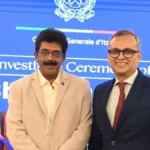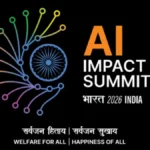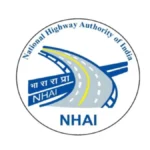Neelkanth Mishra Appointed Part-Time Chairman of UIDAI
Neelkanth Mishra, a seasoned economist and expert in finance, has been appointed as the Part-Time Chairman of the Unique Identification Authority of India (UIDAI). This significant development holds noteworthy implications for various government exams, especially those targeting positions in civil services, banking, railways, police, and more. In this article, we will delve into the importance of this news, its historical context, and the key takeaways that aspiring candidates should keep in mind.

Why this News is Important
Appointment of Neelkanth Mishra
The appointment of Neelkanth Mishra as the Part-Time Chairman of UIDAI is of paramount importance due to his extensive experience and expertise in economics and finance. Mishra’s appointment is set to bring a fresh perspective to the UIDAI, the organization responsible for issuing Aadhaar cards, which is a crucial component of the Indian government’s digital identity initiative.
Relevance for Government Exams
For students preparing for government exams such as the Civil Services Examination (CSE), banking, police, and more, this news is vital. Mishra’s leadership in UIDAI could lead to policy changes and innovations related to Aadhaar, impacting questions and topics related to digital governance, data security, and government initiatives.
Historical Context
To understand the significance of Neelkanth Mishra’s appointment, it’s essential to consider the historical context. The UIDAI was established in 2009 under the leadership of Nandan Nilekani. It has since played a crucial role in providing unique identification numbers to Indian citizens, streamlining welfare distribution, and enhancing governance.
Key Takeaways from Neelkanth Mishra’s Appointment as Part-Time Chairman of UIDAI
| Serial Number | Key Takeaway |
|---|---|
| 1. | Neelkanth Mishra, an economist, is appointed as the Part-Time Chairman of UIDAI. |
| 2. | UIDAI is responsible for issuing Aadhaar cards, a vital component of digital identity in India. |
| 3. | Mishra’s expertise in economics and finance could lead to policy changes and innovations in UIDAI. |
| 4. | Aspiring candidates for government exams should stay updated on developments in digital governance and data security. |
| 5. | Understanding the historical context of UIDAI is essential for comprehending its current significance. |
Important FAQs for Students from this News
Q1: Who is Neelkanth Mishra, and why is his appointment as Part-Time Chairman of UIDAI significant?
A1: Neelkanth Mishra is an economist with extensive experience in finance. His appointment as Part-Time Chairman of UIDAI is significant because UIDAI plays a crucial role in issuing Aadhaar cards, a vital component of India’s digital identity initiative. Mishra’s expertise could impact policies related to digital governance and data security, making this news relevant for government exam aspirants.
Q2: What is UIDAI, and when was it established?
A2: UIDAI (Unique Identification Authority of India) was established in 2009 under the leadership of Nandan Nilekani. It is responsible for providing unique identification numbers to Indian citizens through Aadhaar cards.
Q3: How can knowledge about Neelkanth Mishra’s appointment benefit candidates preparing for government exams?
A3: Aspiring candidates should stay updated on developments related to digital governance, data security, and government initiatives, as these topics are likely to appear in government exams. Understanding the historical context of UIDAI is also essential for a comprehensive understanding of its significance.
Q4: What are the potential implications of Neelkanth Mishra’s appointment for UIDAI and Aadhaar?
A4: Mishra’s appointment may lead to policy changes and innovations within UIDAI, potentially affecting the way Aadhaar is managed and used in government programs. Aspirants should stay informed about these potential changes.
Q5: Are there any recommended resources or books to learn more about the UIDAI and digital governance?
A5: Candidates preparing for government exams can refer to authoritative sources, government publications, and books on Indian governance and digital initiatives to gain a deeper understanding of these topics.
Some Important Current Affairs Links

















